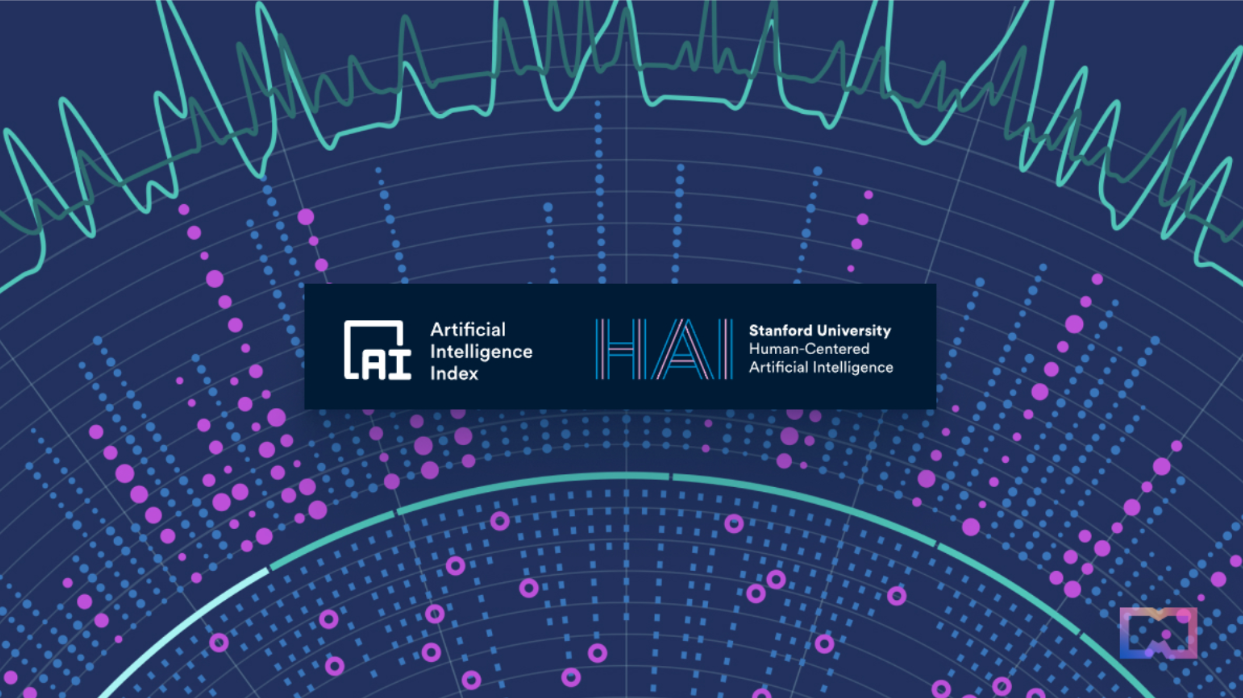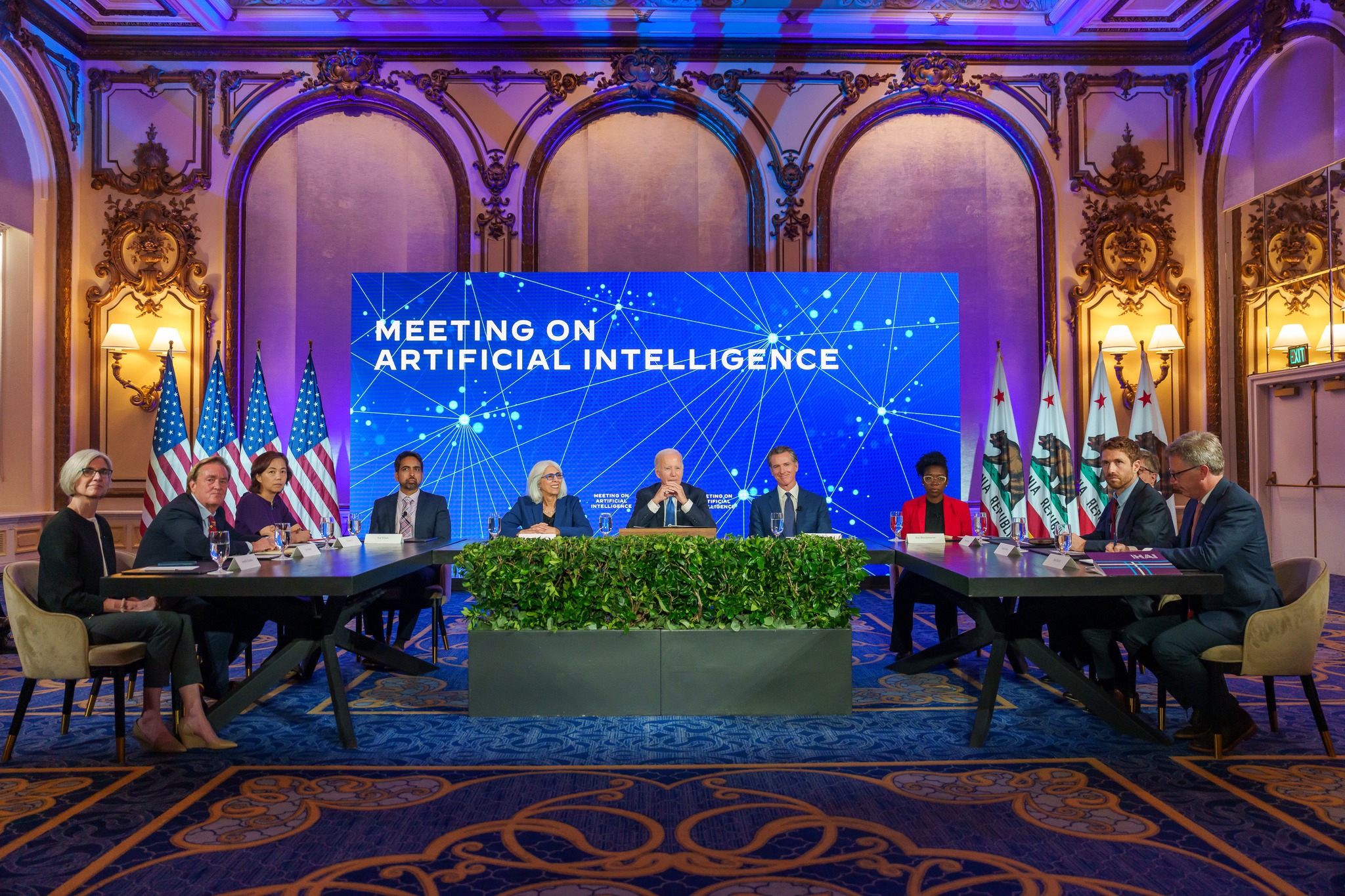The 2023 Artificial Intelligence Index by the Stanford Institute for Human-Centered Artificial Intelligence (HAI) (of which Radical Scientific Partner Fei-Fei Li is Co-Director), provides insights into the impact and progress of AI. This comprehensive report is a data-driven analysis of AI’s advancements, covering key themes like research, ethics, policy, public opinion, and economics. In this week’s Radical Reads, we will explore the most significant takeaways for industries looking to integrate AI into their operations.
Machine learning is now dominated by industry models
Last year, industry produced a staggering 32 notable machine learning models, whereas academia produced just three. Historically, academia played a more significant role in releasing machine learning models. However, the study suggests that industry has more resources to build state-of-the-art AI systems, including data, compute, and money. For instance, the report estimates that Deepmind’s Chinchilla Model and HuggingFace’s BLOOM respectively cost US$2.1 and $2.3 million to train.
Companies adopting AI are pulling ahead
The transformative power of AI is well-documented, and companies that have embraced the technology are already reaping the rewards. According to recent reports from McKinsey & Company, businesses that have implemented AI solutions have seen significant cost reductions and revenue increases. The most prominent benefit reported by business leaders was lowered costs (37%), followed by improved collaboration across business functions/organizations (34%), and valuable insights discovery (34%).
Evidence of AI’s business value can be seen in the AI-related text of Fortune 500 earnings calls, which showed positive associations with AI tools. The most frequently mentioned use cases for AI solutions were business integration, service operations optimization, creation of new AI-based products, customer segmentation, customer service analytics, and AI-based product enhancements.
But, adopting AI into a business comes with challenges
While AI technology adoption has been a game-changer for businesses, it is important to continue managing the process as it scales. Common barriers for organizations include managing AI-related risks (50%), obtaining more data or inputs to train a model (44%), and implementation (42%).
Identified AI-related risks include regulatory compliance (45%), personal/individual privacy (40%), and explainability (37%). The number of AI bills passed by world governments is growing nearly exponentially. As the regulatory environment develops, a unified approach is needed to avoid a patchwork of standards.
As businesses continue to push the envelope with AI, it is crucial to address potential risks and collaborate on ethical considerations and the impact on the environment.
Importantly, the study found that submissions to the AI ethics conference FAccT have increased tenfold since 2018, indicating progress in ethical consideration for AI systems. As businesses increasingly utilize AI to achieve their goals, guidelines must be in place to avoid risks and ensure sustainable growth.
Despite these challenges, AI presents an array of new opportunities
Scientists have recently started using AI to aid hydrogen fusion, speed up matrix manipulation, and even create new antibodies. Additionally, AI is showing promise in managing environmental impacts by optimizing energy usage through innovative reinforcement learning models. The 2023 Stanford Index Report acknowledges the challenges associated with technological transitions and highlights that AI presents an exciting possibility for businesses to create innovative opportunities for growth and development.
AI News This Week
-
Listen: Aidan Gomez of Cohere on transformers, LLMs, command and instruct models (The Robot Brains Podcast)
The Robot Brains Podcast brings together some of the best in the field of AI for conversations with host Pieter Abbeel (also President, Chief Scientist and Co-founder of Covariant). In this episode Cohere’s co-founder and CEO, Aidan Gomez, discusses Transformers, Large Language Models (LLMs), Command and Instruct Models, Prompt Engineering, and the competitive landscape of LLMs. (Covariant and Cohere are both Radical Ventures portfolio companies.) Aidan, who is a co-creator of the Transformer architecture that underpins generative AI, dives into the groundbreaking innovation of neural nets, which has had an immense impact on AI and NLP in the past 10 years.
-
Watch: The time is now, AI will be integrated into the largest businesses in the world: Cohere CEO (BNN Bloomberg)
Speaking to BNN Bloomberg, Cohere co-founder and CEO Aidan Gomez equates ChatGPT to a ‘light bulb’ moment for the whole world emphasizing that investment in AI from businesses is here to stay. He discusses how talented workers became available for start-ups following the tech layoffs and describes how Canada remains an epicenter for innovation in the field.
-
Just for Fun: Chinese creators use Midjourney’s AI to generate retro urban “photography” (MIT Technology Review)
Using AI, researchers in China have developed a machine learning model that can take modern digital photographs and convert them to retro-style fashion images that resemble those taken in the 1950s and ’60s. Notably, the model can perform the task efficiently while still maintaining the fine details in the original image. The researchers believe their work may have applications in creating advertising campaigns or film productions that require a vintage feel, as well as in developing augmented reality experiences.
-
Explainer: The Future of AI: What comes next and what to expect (The New York Times)
If you are new to AI, Cade Metz at The New York Times has co-authored a five-part introductory series on AI focusing on chatbots. The authors have included a glossary and cover high-level explainers as well as larger societal and ethical questions. Cade Metz is also author of the book “Genius Makers,” which focuses on the people driving modern AI.
-
Research: AI-equipped eyeglasses can read silent speech (Cornell University)
Cornell University’s Smart Computer Interfaces for Future Interactions (SciFi) Lab has developed EchoSpeech glasses that utilize AI and acoustic-sensing technology to recognize wearer commands based on visual mouth and lip movement – eliminating the need for vocalizations. The glasses can interpret up to 31 commands and may offer a new avenue for patients who cannot speak. The silent-speech recognition device uses microphones, speakers, and AI to analyze echo profiles in real-time, boasting a reported accuracy rate of 95%.
Radical Reads is edited by Leah Morris (Senior Director, Velocity Program, Radical Ventures).





